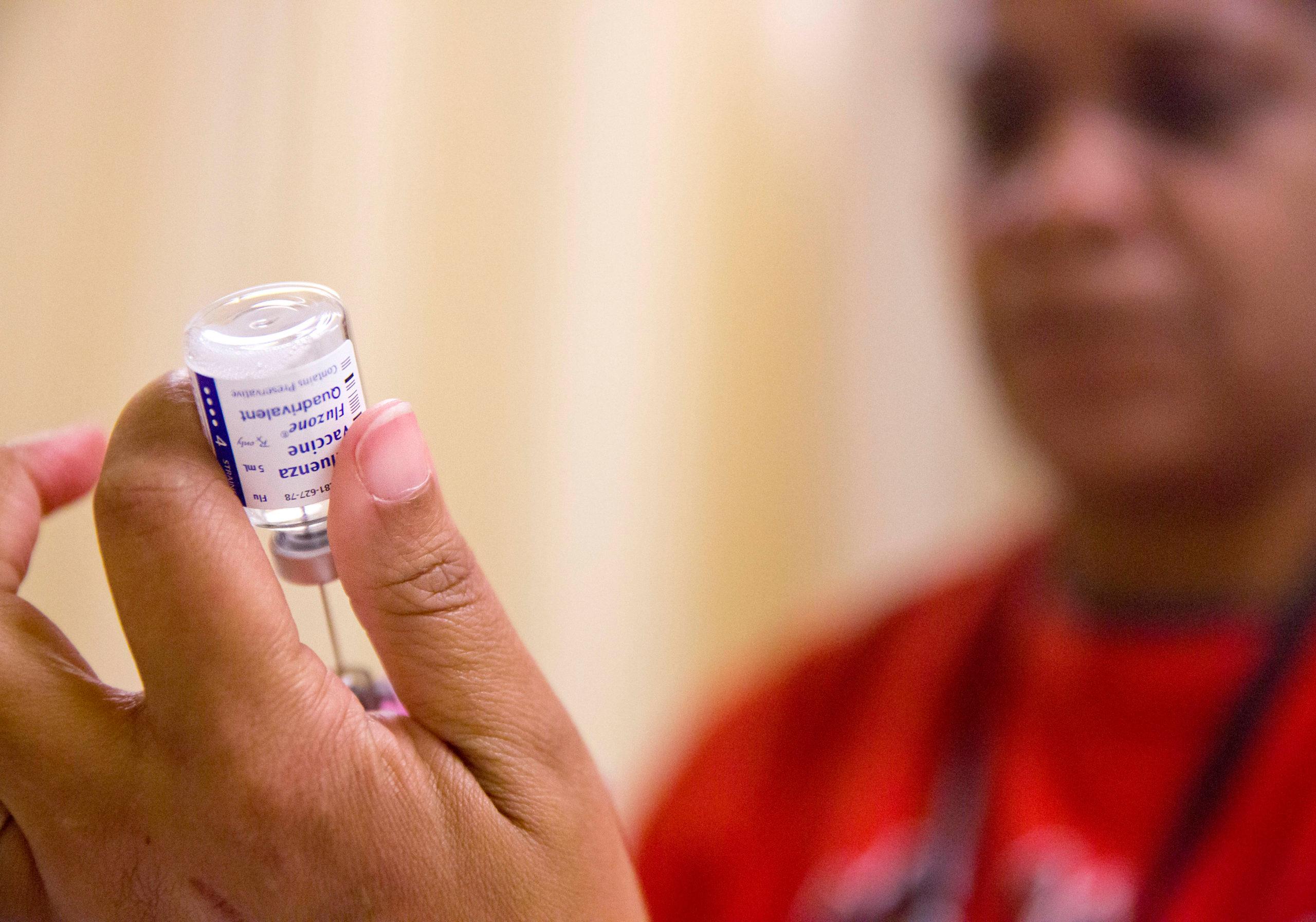
Should Colorado lawmakers change state law in an effort to encourage more people to get their children vaccinated?
The debate starts with the introduction of Senate Bill 20-163. It would require parents who want to opt a child out of vaccines to either get a signature from an immunization provider or watch an online informational video produced by the Colorado Department of Public Health and Environment.
The measure doesn’t change which exemptions are allowed. In Colorado, people can opt-out for medical or non-medical reasons, such as a personal or religious belief. Right now parents turn in a form to a child’s school or daycare provider.
The Democratic sponsor, state Sen. Julie Gonzales of Denver, said some schools are especially vulnerable to a potential measles outbreak because of vaccination rates that fall well below the 95 percent threshold needed for what’s known as herd immunity. Gonzales is worried for those who can’t get vaccinated.
“There are immunocompromised folks, whether we're talking about babies, whether we're talking about folks who have navigated cancer and other serious diseases, folks who have had transplants,” she said.
The percentage of Colorado kindergarteners vaccinated for measles, mumps and rubella has dropped to 87 percent, according to the Centers for Disease Control and Prevention — the lowest rate in the country. Public health groups unsuccessfully tried to pass a bill to bolster vaccination rates in the last session. It failed in the Senate.
Unlike the previous bill, this attempt has the backing of Democratic Gov. Jared Polis who said “it strikes the right balance” between protecting parental rights and public health.
While the governor’s support could make it easier for some lawmakers to get behind the bill, it is expected to be one of the more contentious issues of the session. Opponents say they’re concerned about what information would be included in a state-sponsored informational video and what doctors would tell patients about vaccines.
“I will say any effort to restrict Coloradans’ rights to decide what gets injected into our bodies and our families’ bodies will be met with strong opposition,” said Phil Silberman, one of the founding members of the Colorado Health Choice Alliance, which opposes government-mandated vaccines. “Last year we had 1,000 people at the capitol. This year there will be more.”
Individuals opposed to vaccines or concerned about the potential impacts have a more coordinated effort this year and are running their own slate of bills.
Republican state Rep. Mark Baisley of Roxborough Park is expected to introduce a measure that would give the state’s Department of Human Services a directive to emphasize current state law, failure to vaccinate a child isn’t considered child abuse.
“So this is just being very specific and gives comfort, frankly, to my constituents that child protective services is being told that if they choose to slow down or even omit vaccinations from their children, that child protective services is not to use that as a cause for removing their children from their home,” Baisley said.
House Bill 20-1239, known as the "Vaccine Consumer Protection Act,” has already been introduced. Colorado Springs Republican state Rep. Dave Williams is the sponsor. The proposal requires health care providers to disclose the ingredients in vaccines, the manufacturer’s website, a list of harmful or adverse impacts and the exemption rules. It also prohibits health care workers from recommending or providing a vaccine to someone under the age of 18 without the parent’s consent.
Williams doesn’t see his bill as pro- or anti-vaccine, but as a free-market approach.
“It would be a very balanced way to handle this, gives patients and families good information so that they can make an informed decision,” he said. “So, I think it should really be no controversy.”
Bill opponents say doctors and nurses already provide parents with accurate information about vaccinations and answer patient questions.
“We are focused on passing proactive legislation on boosting Colorado’s immunization rates,” said Michele Ames, a spokeswoman with Colorado Vaccinates. She said a very small percentage of people are allergic to vaccines or injured by them. “I don’t understand what this bill is trying to accomplish.”
A Republican bill that would have prevented businesses from requiring workers to be vaccinated failed in a Senate committee on Monday.









